Histamine - the underestimated disruptive factor for your hormonal balance
Many of my clients tell me about similar symptoms: sudden palpitations in the evening, a bloated stomach after a seemingly healthy diet, skin problems or insomnia before their period. Does this sound familiar to you?
If you eat a hormone-friendly diet, exercise and still constantly feel like your body is under power, then histamine could be playing a role - a substance that occurs naturally in many foods but can have a major impact on sensitive women.
What actually is histamine?
Histamine is a so-called biogenic amine - a messenger substance that performs many tasks in the body: It acts in the immune system, regulates stomach acid, influences blood circulation and is even involved in hormonal processes.
Normally, excess histamine is broken down by the body via certain enzymes (such as DAO - diamine oxidase). But if:
too much histamine is absorbed,
the enzymes are not working optimally (e.g. due to hormonal imbalance, stress or genetics),
or the body is overloaded (e.g. due to intensive training, a diet or fasting),
...this can lead to a histamine intolerance or sensitivity.
Typical symptoms of histamine exposure:
Water retention and bloating
Headaches or migraines
Restless sleep or waking up at night (especially around 3-4 am)
Palpitations, hot flushes, sudden sweating
Skin reactions (redness, pustules, spots)
Cycle complaints or PMS
Mood swings, irritability
Women in the perimenopause or with hormonal imbalances are often affected without knowing it.
Histamine bombs on your plate - what you should (temporarily) avoid:
Here is a small overview of foods that contain a lot of histamine or stimulate the body's own histamine release:
Mature cheese, fermented products (e.g. kombucha, sauerkraut)
Tomatoes, spinach, avocado (unfortunately!)
Smoked meat, sausage products
Alcohol - especially red wine and sparkling wine
Vinegar, soy sauce, yeast extract
Nuts and chocolate (including dark chocolate!)
Citrus fruits, bananas, strawberries
Fish, especially if not completely fresh
Sounds strict at first - but don't worry: it's not about giving up everything forever, but finding out what your body can currently tolerate.
What helps with histamine problems?
I often work with my clients on a gentle reset:
Phase 1: Low histamine diet - targeted relief for 7 to 14 days
Phase 2: Support intestines, liver & detoxification
Phase 3: Slowly build up again and test individual tolerance
Also important:
Regular, moderate training (no constant maximum loads!)
Good sleep routine
Stress reduction (e.g. through walks, breathing exercises or a conscious start to the day with lemon water and exercise)
Food supplements such as DAO enzyme, vitamin C, magnesium or quercetin (as required)
My conclusion:
Histamine is not an "enemy" - but with hormonal issues such as PMS, water retention, sleep problems or perimenopausal symptoms, too much can cause your system to falter.
If you often feel puffy, suffer from cravings or mood swings, it's worth taking a closer look at histamine. It can be a real game changer for your body image, your skin and your energy - especially at 40+.
Would you like to find out if histamine is also an issue for you? Then get in touch with me for a personal coaching session.
